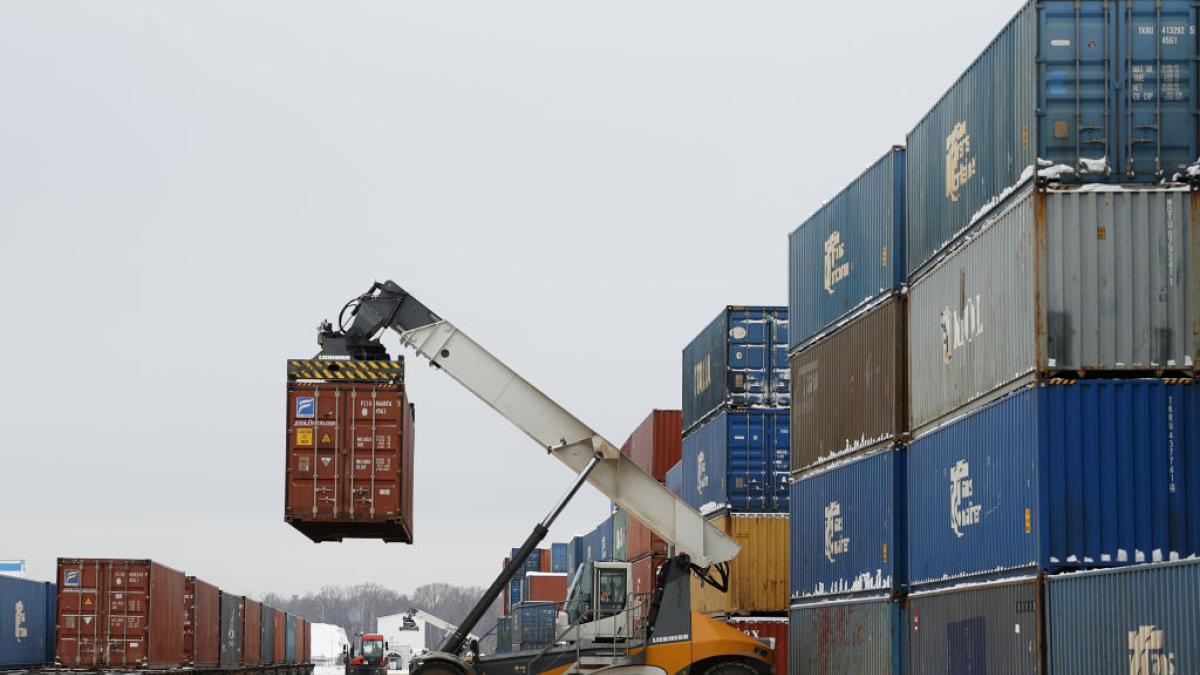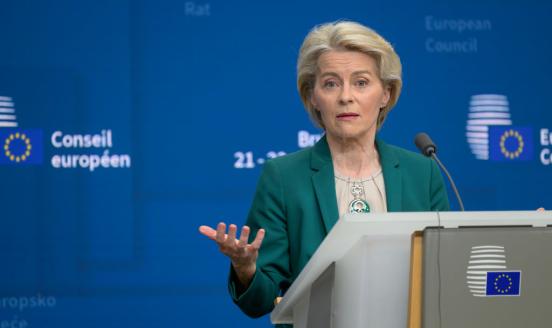Use the financial system to enforce export controls on Russia
Prohibition of Western tech exports to Russia is not working; rapid measures are needed to tighten up

Restrictions on exports of goods that are critical for Russia’s military industry are a main plank of the comprehensive sanctions imposed on the country since its full-scale invasion of Ukraine. But are the restrictions, repeatedly tightened by Ukraine’s allies over the past two years, working? Media reporting and research, including by the Kyiv School of Economics, have shown, in fact, that export controls enforcement is facing serious challenges.
In 2023, Russia imported $12.5 billion worth of goods that the European Union, United States and their partners have determined to be of particular importance for the Russian war effort. These include microelectronics, communications equipment and machinery for the production of weaponry. While there is some evidence that Russia is paying significant mark-ups to obtain export-controlled goods through complex circumvention networks, imports of these goods have essentially rebounded to their level before the full-scale invasion in February 2022. Ukrainian authorities continue to find the same Western components in Russian weaponry as two years ago, with more than 90% of all foreign components discovered in military hardware stemming from Western producers.
Russia thus continues to get what it needs, rendering the situation on the battlefield even more challenging. Export controls are difficult to enforce since many sanctioned products of Western companies are produced abroad and then sold and shipped to Russia through multi-layered networks of intermediaries in countries including China, Turkey and the United Arab Emirates. Meanwhile, exports from the EU and other allies of Ukraine to Central Asia and the Caucasus have increased massively, indicating significant circumvention. Companies are either not able or not willing to effectively control their supply and distribution chains.
Export controls are hard to enforce in a multipolar world, in which large countries do not participate in the sanctions regime and, even worse, facilitate evasion and circumvention. However, Western policymakers have not been entirely focused on enforcing export controls on Western technology, even though Russia’s war of aggression fundamentally threatens peace and prosperity in Europe.
To improve enforcement, Western policymakers should leverage the financial system’s critical role in international trade. Non-financial companies should also learn lessons from due-diligence efforts relatively successfully implemented in the financial system.
First, financial institutions themselves could be tasked with roles in the monitoring of trade in export-controlled goods, and with impeding illicit transactions. Every export of a restricted good by a Western firm involves a financial transaction with the Western financial system. At some point in the complex export delivery chain, a financial transfer from a foreign financial entity to a Western entity needs to occur. Export controls enforcement thus faces similar challenges to anti-money laundering and countering terrorist financing (AML/CFT): complex chains of custody, opaque ownership structures, frequent institutional changes, reliance on less-strict jurisdictions for the set-up of circumvention schemes, and often highly fungible goods. Because of the regulatory framework that has been established over the past two decades in these areas, financial institutions have built the internal compliance architecture to detect such schemes. While some modifications to the legal framework and internal procedures may be required to apply existing AML/CFT regulations to sanctions on Russia, banks already have access to much of the information needed to trace financial counterparts in export-controlled goods transactions. The continued dominance of Western banks within the global financial system should enable them to link the corresponding financial transactions to many physical shipments of export-controlled goods.
Second, non-financial Western companies need to be incentivised to implement proper due-diligence procedures to ensure compliance with export controls. Detecting and preventing suspicious transactions involving export-controlled goods is a difficult task considering the complexity of supply and distribution chains. However, companies should build on banks’ experience with ‘know your client’ and ‘know your client’s client’ standards and related procedures.
In this, the incentive structure is vital. Banks established their compliance infrastructures because of a very straightforward risk calculation: the potential financial penalties outweigh the costs. But to get to this point, authorities had to demonstrate an ability and willingness to investigate violations and impose significant fines. In the case of high-tech companies exporting dual-use goods, this has simply not happened so far. Clearly establishing that there is an increasing probability of detection, and that non-compliance carries high costs would ensure that companies’ monitor their distribution networks. Put differently, considering that Western companies saw their exports to Central Asia triple within a year of the imposition of export restrictions on Russia, they should face stricter requirements to monitor such exports and to desist when the ultimate beneficiary of the export is not known (and is very likely Russia).
Western policymakers must carefully trade-off the costs of stricter enforcement with the benefits. While export restrictions are burdensome for public authorities and companies, Russia’s military success would be even more burdensome. The longer the war lasts, the greater will be the general costs for Ukraine’s allies. For instance, the West is providing Ukraine with expensive air-defence capabilities, needed to defend Ukrainians against weapons that Russia is able to produce at increasing rates because of ineffective export controls. Moreover, the effectiveness of sanctions on Russia will be a test case for future conflicts. Western credibility is at stake.



